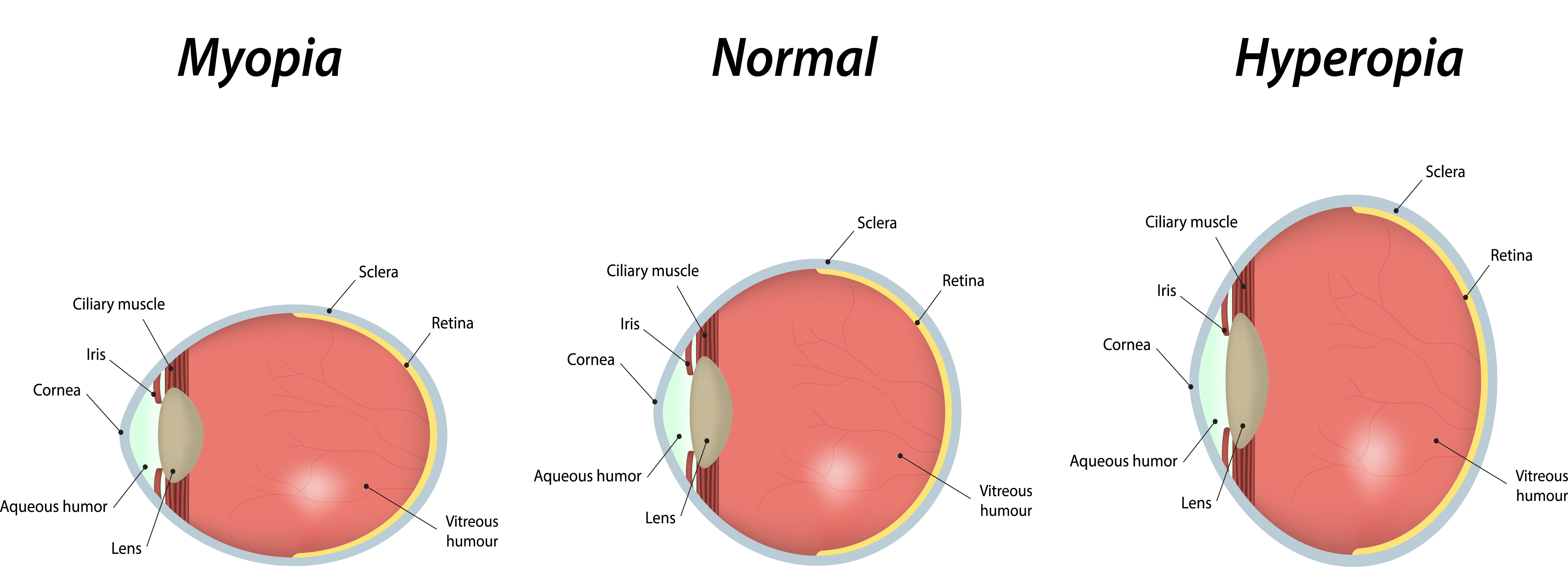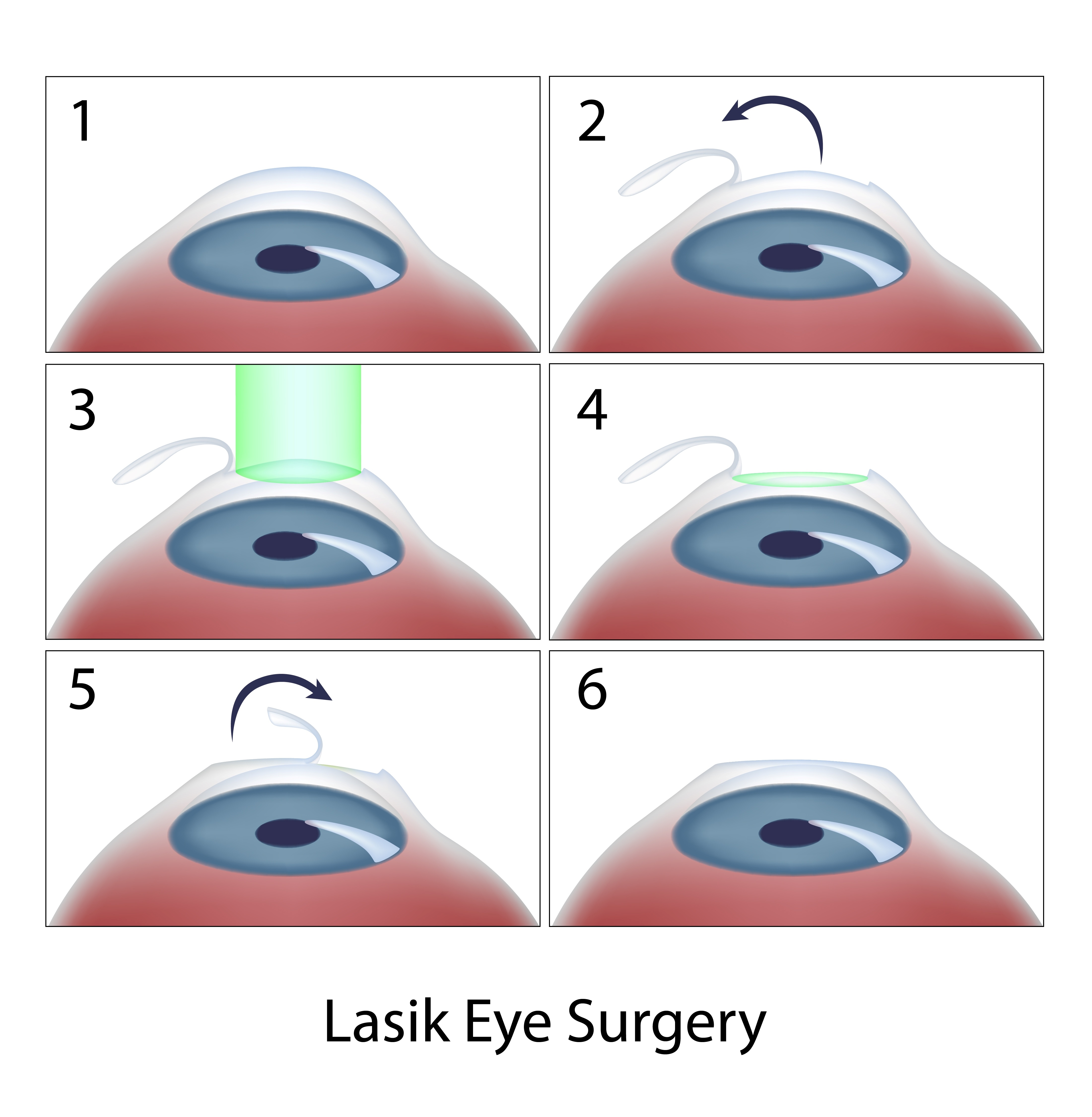Updated on January 17, 2025
Can I Get LASIK Again?


Vision Center is funded by our readers. We may earn commissions if you purchase something via one of our links.
If you’re among the millions of people who’ve had LASIK surgery, you may wonder if the results will wear off. The vast majority of LASIK procedures lead to permanently improved vision. But sometimes, a second surgery may be necessary.
Can You Get LASIK Twice?
Yes, you can get LASIK surgery twice.
LASIK doesn’t prevent age-related vision changes. Because of this natural aging process, you may experience:
- The progression of refractive errors
- The development of new refractive errors that require treatment
About 10% of people who had their initial surgery 10 years ago may need follow-up treatment to maintain clear vision.1 Some opt for another type of refractive surgery or an enhancement procedure.
There is no age limit for LASIK as long as you are 18 or older. However, people over 40 may not be good candidates if they have unstable vision. It is important to check with your eye doctor to determine your candidacy.
How Many Years Does LASIK Surgery Last?
For most people, the effects of LASIK eye surgery last a lifetime. When the eye surgeon reshapes your cornea, they correct the imperfections that cause poor visual acuity. Because of this, LASIK is considered a permanent solution.
However, refractive errors can progress, or you may develop other vision changes later. Because your eyes change with age, you may experience new refractive errors after LASIK surgery.
If this happens, it isn’t due to regression following the surgery. LASIK only treats existing conditions.
Risks of Undergoing LASIK Eye Surgery Multiple Times
LASIK is generally considered a quick and safe surgery to treat vision problems with a high success rate. A reported 99 percent of LASIK procedures result in 20/40 vision or better. More than 90 percent achieve 20/20 vision or better after laser vision correction.4
With LASIK surgery, as with all surgeries, there are some side effects and risks involved. The more times you have the surgery, the more often you face these risks.
Here are some risks associated with LASIK surgery:
- Dry eye. You may experience dry eyes for up to three months. (Eye drops can help).
- Visual disturbances. You may have nighttime glare or see halos in the dark.
- Corneal flap complications. LASIK involves cutting a flap in your cornea. There’s a risk of corneal flap injury if it becomes irritated or dislodged during the healing process.
Speak to your eye doctor or another eye care specialist about getting a LASIK consultation. An expert can help you determine if you’re a good candidate for LASIK enhancement surgery.
What Is LASIK Surgery?
LASIK stands for laser-assisted in situ keratomileusis. It’s an eye surgery that permanently corrects your vision by reshaping the corneal tissue.
The cornea is the part of your eye that helps to bend and focus light to create an image. Sometimes the shape of the cornea is not perfect. This causes refractive errors that blur or distort the images you see.
Surgical procedures like LASIK reshape the corneal tissue with an excimer laser to improve the eye’s focusing power.
LASIK can help treat three primary refractive errors:
- Myopia. Also known as nearsightedness. People with myopia have difficulty seeing distant objects clearly.
- Hyperopia. Also known as farsightedness. People with hyperopia have difficulty seeing objects close up clearly.
- Astigmatism. Irregularities in the shape of the cornea or the lens of the eye that causes image distortion on the retina.

While the corrective lenses in reading glasses and contact lenses are simple methods of vision correction, laser eye surgery is a long-term, permanent solution.
How Does LASIK Work?
In LASIK surgery, your eye surgeon will use a mechanical microkeratome (blade) or a femtosecond laser to cut a flap in your cornea.
They’ll leave a hinge at one end of the flap and fold it back to reveal the stroma (the middle section of the cornea). They’ll then use pulses from a computer-controlled laser to vaporize a portion of the stroma. Then, they replace the corneal flap.

While this may sound painful, the LASIK procedure only takes about 10 minutes per eye. The laser itself only takes about 20 to 50 seconds to correct your vision, depending on how much correction you need.
In this article
6 sources cited
Updated on January 17, 2025
Updated on January 17, 2025
About Our Contributors
Lauren, with a bachelor's degree in biopsychology from The College of New Jersey and public health coursework from Princeton University, is an experienced medical writer passionate about eye health. Her writing is characterized by clarity and engagement, aiming to make complex medical topics accessible to all. When not writing, Lauren dedicates her time to running a small farm with her husband and their four dogs.
Dr. Melody Huang is an optometrist and freelance health writer with a passion for educating people about eye health. With her unique blend of clinical expertise and writing skills, Dr. Huang seeks to guide individuals towards healthier and happier lives. Her interests extend to Eastern medicine and integrative healthcare approaches. Outside of work, she enjoys exploring new skincare products, experimenting with food recipes, and spending time with her adopted cats.

